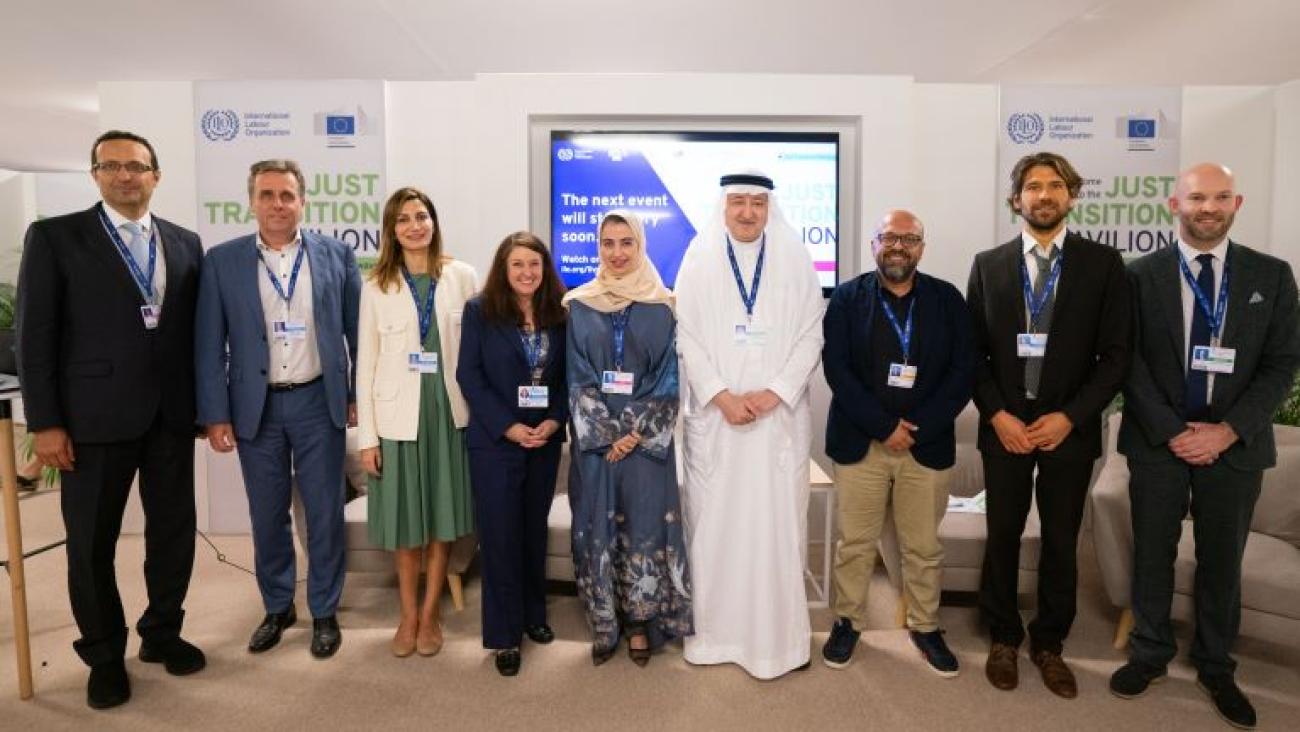Dubai, UAE
In a First-of-its-kind, the International Labour Organization (ILO) and the Islamic Development Bank (IsDB) unveiled the first-ever study on scenarios for robust industrial and climate development policies in the Middle East and North Africa (MENA) region at COP28 in Dubai. The report, titled "The social and employment impacts of decarbonization and green industrial growth scenarios for the Middle East and North Africa region," presents a transformative vision for the region's future.
Creating Opportunities: 10 Million New Jobs by 2050
The research estimates that the MENA region has the potential to create an impressive 10 million new jobs by 2050, fostering a 7.2% increase in GDP and a 5.3% boost in employment. These ambitious projections hinge on the implementation of robust industrial and climate development policies. The scenarios outlined in the report explore pathways that could lead to significant socio-economic progress in less than three decades.
A Vision for Resilience and Inclusion
To achieve such remarkable results, the report advocates for MENA countries to adopt strong industrial policies, intertwine climate goals with development strategies, and invest in climate resilience initiatives. These include green water desalination, reforestation, and waste management, forming a comprehensive resilience scenario that leaves no one behind.
The Just Transition: A Commitment to Fairness and Equality
Emphasizing a commitment to a 'just transition,' the report suggests that inclusivity and fairness should underpin the formulation of economic, social, and labor market policies. Her Excellency Shayma Al Awadhi, Assistant Undersecretary for Communication and International Relations at the Ministry of Human Resources and Emiratisation, highlighted the importance of ensuring that economic prosperity and job creation go hand in hand with climate action, outlining the UAE's Net Zero by 2050 initiative as a significant step towards decarbonization.
UAE's Leading Role in the Green Industrial Revolution
The United Arab Emirates (UAE) is at the forefront of this green revolution, with the Net Zero by 2050 initiative spearheading decarbonization efforts. H.E. Al Awadhi emphasized that a just transition involves formulating and implementing policies that prioritize social justice and equality, ensuring that no one is left behind.
According to ILO Deputy Director-General Celeste Drake and ILO Deputy Regional Director for Arab States Peter Rademaker, the MENA region stands at a critical juncture, uniquely positioned to lead the global energy transition. With natural advantages in renewable resources and a young labor force, the region can achieve significant welfare gains through strong industrial and just transition policies.
Eng. Mohammad Jamal Alsaati, Special Advisor to His Excellency the President of the IsDB, highlighted the recent launch of the IsDB's Just Transition Conceptual Framework and Action Plan 2023-2025. This plan aims to support fair and inclusive transitions, aligning with the study's findings and informing ongoing country dialogues.
Pathways to Success: Strong Industrial Policies and Just Transition Strategies
The report's main findings, developed by Cambridge Econometrics, present three scenarios: a passive stance, active participation, and an ideal scenario. The ideal scenario envisions optimal labor market and socio-economic outcomes, requiring strong industrial policies in green hydrogen, solar power, and electric mobility. Just transition policies, focusing on upskilling, reskilling, and skills training, would be crucial, coupled with investments in human capital, social protection, and support for unskilled and low-income workers.
This landmark study, funded by the ILO Partnership Department’s South-South and Triangular Cooperation and internal ILO funding, represents a collaborative effort involving representatives from the ILO, IsDB, United Nations Framework Convention on Climate Change (UNFCCC), regional government officials, worker and employer representatives, and development partners. The findings provide a blueprint for a sustainable, inclusive, and prosperous future for the MENA region.
The full report : The social and employment impacts of decarbonization and green industrial growth scenarios for the Middle East and North Africa region







